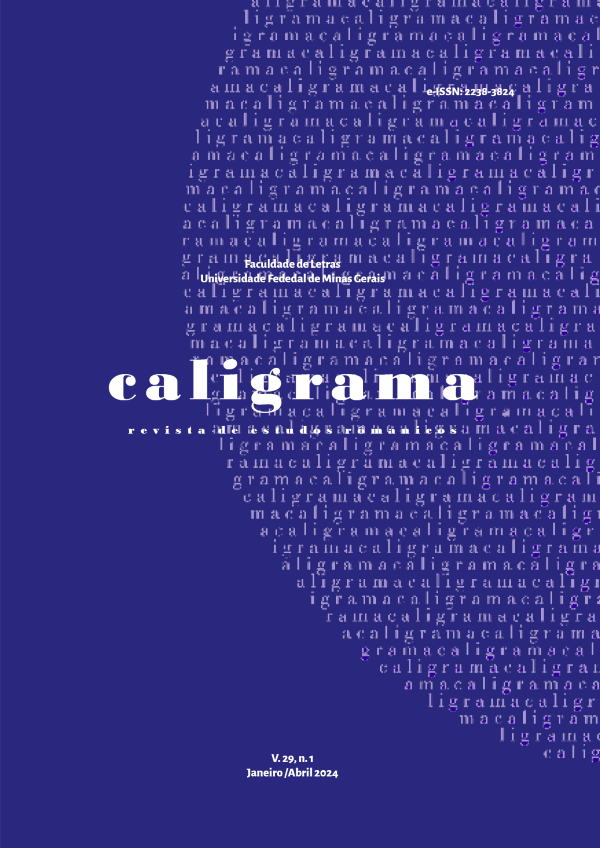Postcolonial Waters in Angolan and Mozambican Novels
DOI:
https://doi.org/10.17851/2238-3824.29.1.75-86Keywords:
water, ecocriticism, water spirits, Angolan fiction, Mozambican fictionAbstract
This article aims at mapping the narrative role of water in Angolan and Mozambican literature, through the comparative reading of four novels: O desejo de Kianda (1995) by the Angolan Pepetela; O livro dos Rios (2006) by Luandino Vieira; Água: uma novela rural (2016) and Ponta Gea (2017), both by Mozambican João Paulo Borges Coelho. The introduction places the proposed cartography within the framework of ecocritical studies, whose various paradigms offer useful tools and concepts for reading the selected literary works. The thematic and comparative methodological approach highlights experiences and imaginaries common to two post-colonial contexts, despite the difference in scenarios, themes, aesthetic choices and narrative strategies. The results of the analysis demonstrate that water is a crucial element in narrating post-colonial Angolan and Mozambican societies.
Downloads
References
ALAIMO, S. Trans-Corporeal Feminism and the Ethical Space of Nature. In: ALAIMO, S.; HEKMAN, S. (org.). Material Feminism. Bloomington: Indiana University Press, 2008. p. 237-264.
BENNET, J. Vibrant Matter. Dhuram: Duke University Press, 2010.
BORGES COELHO, J. P. Água. Uma novela rural. Lisboa: Caminho, 2016.
BORGES COELHO, J. P. Ponta Gea. Lisboa: Caminho, 2017.
CAMINERO SANTANGELO, B. Different Shades of Green: African Literature, Environmental Justice, and Political Ecology. Charlotesville: University of Virginia Press, 2014.
ERCOLESSI, M. C. L’Angola indipendente. Roma: Carocci, 2011.
FRANCAVILLA, R. Prefazione. Un uomo, i fiumi. In: VIEIRA, L. Il libro dei fiumi. Traduzione di Daniele Petruccioli, Roma: Gruppo Albatros il Filo, 2010. p. 5-12. (Di fiumi anziani e guerriglieri, I).
HOFMEYR, I.; NUTTAL, S.; LAVERY, C. Reading for Water. Interventions, v. 24, n. 3, p. 303-322, 2022.
IOVINO, S. The Living Diffractions of Matter and Text: Narrative Agency, Strategic Anthropomorphism, and How Interpretation Works. Anglia, v. 133, n. 1, p. 69-86, 2015.
IOVINO, S.; OPPERMANN, S. (org.). Material Ecocriticism. Bloomington: Indiana University Press, 2014.
IOVINO, S.; OPPERMANN, S. Material Ecocriticism: Materiality, Agency and Models of Narrativity. Ecozon@, v. 3, n. 1, p. 75-91, 2012.
LABAN, M. Angola: encontro com escritores. Porto: Fundação Eng. António de Almeida, 1991.
MIGNOLO, W.; WALSH, C. E. On Decoloniality: Concepts, Analytics, Praxis. Durham: Duke University Press, 2018.
MUECKE, S. Fabulation: Flying Carpets and Artful Politics in the Indian Ocean. In: MOORTY, S.; JAMAL, A. (org.). Indian Ocean Studies: Cultural, Social and Political Perspectives. New York: Routledge, 2010. p. 32-44.
NDLOVU-GATSHENI, S. Coloniality of Power in Postcolonial Africa. Dakar: Codesria, 2013.
NIBLETT, M. World Literature and Ecology: The Aesthetics of Commodity Frontiers. Cham: Palgrave, 2020.
PEPETELA. O desejo de Kianda. Lisboa: Caminho, 1995.
SHIVA, V. Water Wars: Privatization, Pollution and Profit. Brooklyn: South End Press, 2002.
TIFFIN, H.; HUGGAN, G. Postcolonial Ecocriticisim: Literature, Animals and Environments. New York: Routledge, 2010
VIEIRA, L. O livro dos rios. Lisboa: Caminho, 2006. (De rios velhos e guerrilheiros, I).
WIESER, D. “A língua é a própria carne do pensamento”. Entrevista a João Paulo Borges Coelho. Cadernos de Estudos Africanos, n. 32, 2016. DOI: https://doi.org/10.4000/cea.2141.
ZAPF, H. Literature as Cultural Ecology: Sustainable Texts. London; New York: Bloomsbury Academic, 2016.





